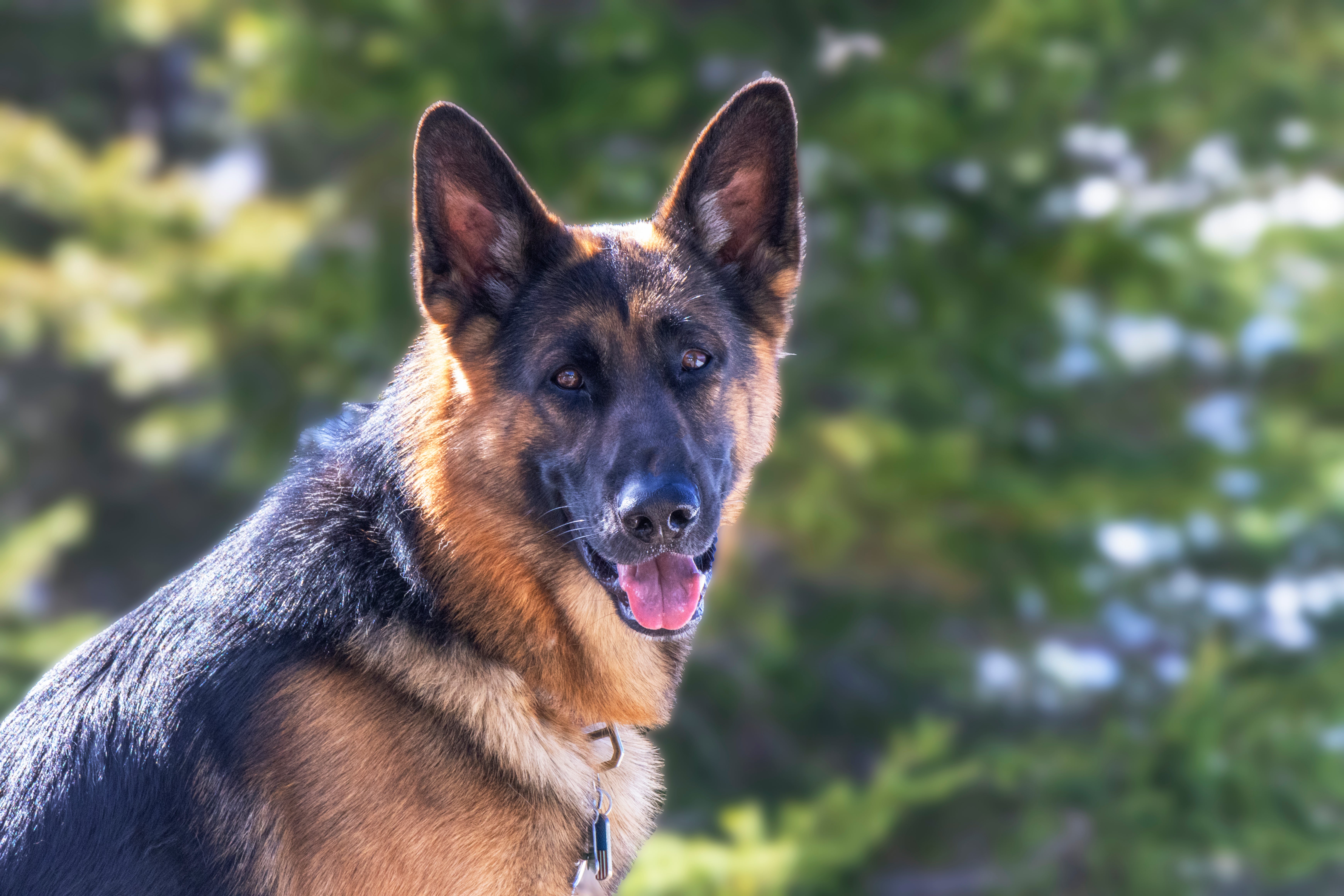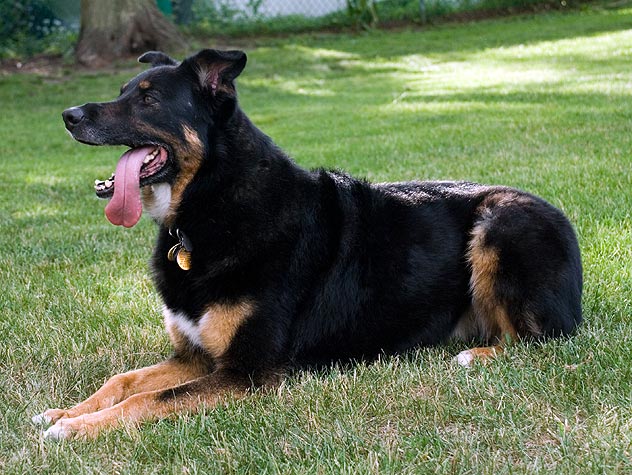Breed characteristics carousel
Learn More
Need to Know
- Dogs suitable for experienced owners
- Extra training required
- Potential health risks
- Enjoys vigorous walks, one to two hours a day
- Large dog
- Some drool
- Chatty and vocal dog
- Barks, alerts, and may be physically protective/suspicious of visitors
- Could have issues with unknown dogs but gets along with known dogs
- May need additional training to live with other pets
- May need additional supervision to live with children
- Needs a large yard, either suburban or rural
- Can be left alone occasionally with training
- AKC Registered Breed

Personality
Often described as a “one man (or woman) dog,” German Shepherds form extremely strong, affectionate, and loyal bonds with their handlers, wanting to be with them as much as possible.
A well-behaved, well-trained German Shepherd should be bold, confident, swift, and intelligent, as well as calm and steady. They should listen well to their owner and be eager to learn and easy to train. They are sensitive and slow to mature, which might require more patience and effort than one might think. But the trade-off is a smiley, happy, Einstein of a dog who will stick by your side no matter what.
Bred to be herding dogs originally, the German Shepherd would move lost sheep back to their flocks—silently, as not to alarm the whole flock. Their origins can be traced back to the 7th century. Through their German breed club in the late 19th century, they were developed for police and armed forces use. During the First World War, they fell out of favor due to their German association. The breed’s name was changed during wartime to the Alsatian dog in England and France to avoid discrimination. Thankfully, this is far in the past and the German Shepherd has regained its name and its glory as one of the smartest breeds around.
German Shepherd owners should be fit, but they should also know that these dogs, despite stereotypes, are big softies. They do well with reward-based training and might be slow to learn, requiring a lot of patience and deft skill in navigating their sensitive personalities. The reward can be a loyal lieutenant of a companion, albeit one that sheds a lot.
To get that famous German Shepherd grin you’ll need to exercise your dog daily, varying the route and location. Training puzzles, games, and other problem-solving setups will keep their sharp minds engaged. A bored or lonely German Shepherd is a reactive, vocal, and destructive one.
They can reach up to 90 pounds and have guarding instincts. They do best with access to a yard or land with plenty of space to walk, train, and run free.
The bad news: they shed. A lot. But the good news is that the more you groom them, the less they shed. They need brushing to remove dead or loose hairs. Combing might also be necessary for long-haired versions. They won’t need to be trimmed, though, and bathing should only be done as needed.
Consistent socialization is required for German Shepherds. They respond well to reward-based training, but you’ll still need a boatload of patience as they can be slow to mature mentally. A well-trained German Shepherd is extremely capable; one of the first non-herding, non-military uses for them was as guide dogs for the blind.
If you have the time to dedicate to training, exercise, and vacuuming up shed hair, then a German Shepherd can make a good family dog. They might be a little too boisterous and large for homes with tiny children or frail older family members whom they might knock over accidentally.
The cost of a German Shepherd Dog from a breeder is significantly more than the cost of adopting one from a local shelter or rescue. The adoption fee usually covers additional items such as spaying or neutering, vaccines, and microchipping.
Adopting a German Shepherd Dog
Interested in adopting a German Shepherd Dog? Here are answers to some common questions about bringing one of these charming dogs home.
German Shepherds can make great house pets if trained properly and kept stimulated. They also can easily adapt to a new environment and there’s nothing more they like than spending some quality time with their owners.
Yes, German Shepherds make great pets and are known for their calm attitudes, loyalty, love, and intelligence.

Learn more about feeding and caring for your German Shepherd Dog on Purina.
Did You Know
- Long before Lassie, the first canine film star was a German Shepherd Dog known as Rin Tin Tin who was rescued as a puppy in 1918 from a World War I battlefield by Lee Duncan, an American soldier. He made 26 films, had his own radio show, and even his own
- After the World Wars, Americans and Europeans were very concerned about anything German. Their name was changed to Alsatian Wolf Dogs, and some still refer to them by that name today.


